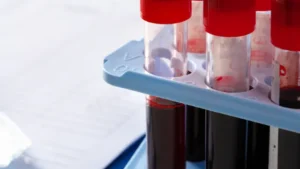

Understanding DUI and DWI Charges
Driving under the influence (DUI) and driving while intoxicated (DWI) are serious criminal offenses with severe consequences. A conviction can lead to hefty fines, license suspension, increased insurance premiums, and even jail time. According to the National Highway Traffic Safety Administration (NHTSA), nearly 30% of all traffic-related deaths in the U.S. involve alcohol-impaired drivers. Given these harsh penalties, anyone facing DUI or DWI charges must explore solid defense strategies to avoid or reduce consequences.
The Importance of a Strong DUI Defense
The right DUI defense strategy can mean the difference between a conviction and a dismissal or reduced charges. Even if the evidence seems overwhelming, an experienced attorney can identify weaknesses in the prosecution’s case. Many DUI cases involve procedural errors, faulty testing equipment, or violations of a defendant’s rights. A strong defense aims to challenge the evidence, create reasonable doubt, and ultimately protect the defendant from unjust penalties.
Common DUI Defense Strategies
Challenging the Traffic Stop
Law enforcement must have a valid reason to pull over a driver. If an officer stops someone without reasonable suspicion, any evidence collected after the stop could be inadmissible in court. For example, if an officer pulled a driver over simply because they were leaving a bar, but there was no erratic driving, the stop could be unlawful.
Questioning the Field Sobriety Tests
Field sobriety tests (FSTs) are commonly used to determine impairment, but they are often unreliable. Factors such as medical conditions, uneven road surfaces, poor lighting, and even nervousness can cause sober individuals to fail these tests. Studies have shown that standard field sobriety tests have an accuracy rate of only 65-77% when conducted correctly, leaving room for doubt in court.
Challenging the Breathalyzer Results
Breathalyzers must be properly calibrated and maintained to produce accurate results. If a device malfunctions or has not been serviced according to regulatory standards, the results may be inaccurate. Additionally, certain medical conditions, such as acid reflux or diabetes, can cause false positives on breath tests.
Examining Blood Test Procedures
Blood alcohol content (BAC) tests are often considered more reliable than breath tests, but they are not foolproof. Errors can occur if samples are improperly stored, contaminated, or mishandled by the lab. Defense attorneys frequently request independent analysis of blood samples to ensure accuracy.
Arguing Rising BAC Levels
Alcohol absorption rates vary based on factors such as body weight, metabolism, and food intake. A person’s BAC can continue to rise even after they stop drinking. If a driver is tested an hour or more after being pulled over, their BAC may be higher than it was while they were driving. This argument can be used to show that the driver was below the legal limit when they were operating the vehicle.
Case Study: A DUI Charge Dismissed
Robert, a 32-year-old professional, was pulled over late at night after leaving a work event. The officer claimed he was weaving within his lane, which Robert disputed. He was asked to perform field sobriety tests on uneven pavement, and due to his pre-existing knee injury, he struggled to balance. The officer arrested him based on poor performance on the tests and a breathalyzer reading of 0.09%.
Robert’s attorney challenged the case on multiple grounds:
Unlawful Stop: The officer’s reason for pulling him over—mild weaving within his lane—was not a clear traffic violation.
Field Sobriety Test Issues: The defense presented medical records proving Robert’s knee injury, making the tests unfairly difficult for him.
Breathalyzer Calibration Problems: Records showed the device used for testing had not been properly calibrated for three months.
Given these issues, the judge ruled the evidence unreliable, and Robert’s DUI charge was dismissed.
What to Do If You Are Facing DWI Charges
If you are arrested for DWI charges, your actions following the arrest can significantly impact the outcome of your case. Remain calm, exercise your right to remain silent, and request legal representation immediately. Avoid providing unnecessary information to law enforcement and never admit guilt or agree to any tests without consulting an attorney.
Frequently Asked Questions
- Can I refuse a breathalyzer test? Yes, but refusal may result in automatic license suspension due to implied consent laws. However, refusal can also limit the prosecution’s evidence against you.
- How long does a DUI conviction stay on my record? It depends on the state, but many states keep a DUI on record for 5-10 years, and some permanently. Expungement may be possible in certain circumstances.
- Can I fight a DUI if I fail the breath test? Yes, breath tests are not always accurate. A skilled attorney can challenge the results based on improper calibration, medical conditions, or procedural errors.
- Will I lose my license after a DUI arrest? Possibly. Many states impose automatic license suspension, but you may be able to challenge it through an administrative hearing.
- Do first-time DUI offenders go to jail? It depends on the state and circumstances. Some first-time offenders receive probation, fines, and license suspension, while others may face short jail sentences.



